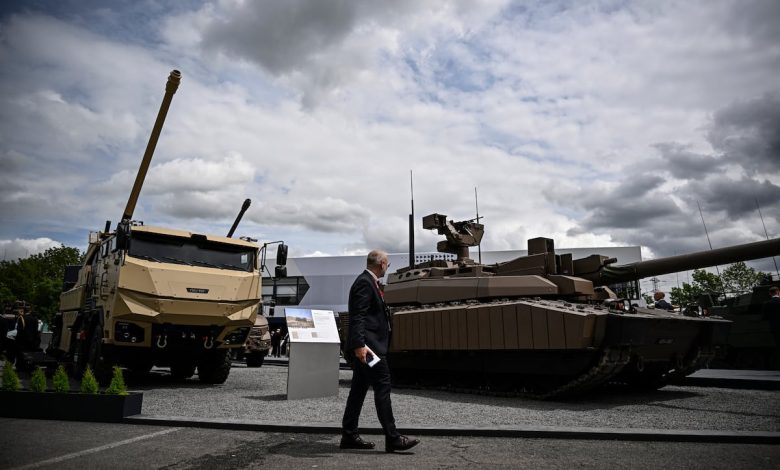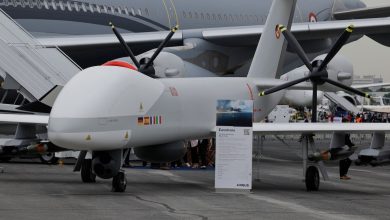France taps defense-industry retirees to keep arms flowing during war

PARIS — France is tapping retired defense-industry workers to create what it calls a “defense industrial reserve,” a pool of experienced labor that can help ramp up production of weapons and armament in times of need.
French armament agency DGA signed contracts with armored-vehicle makers KNDS and Arquus on Tuesday to join the program, which seeks to ensure retiring industry veterans can pass on rare skills to new hires, and head off a potential shortage of skilled labor should the country find itself at war.
The idea behind the reserve is to create a pool of skilled experts, from welders to model makers or engineers, that can be activated to train others or help boost production at their former employer or others, DGA head Emmanuel Chiva told Defense News at the contract signing in Paris. The principle is to prepare France for a return of high-intensity warfare, he said.
“We’re not at war, but on the other hand we must not be naive,” Chiva said “We’re preparing for a rise in strength, if only for the sake of our credibility, and so today we’re going to look for the skills where we can find them.”
After decades in which manufacturing has been shrinking as a share of the French economy, the country’s industry faces difficulties finding skilled labor. Nearly 1 million industrial workers are set to retire by 2030, according to a government report published last year.
Chiva said the automobile industry is another area that could be a source of skilled labor for French defense firms, and the DGA is already working with car maker Renault on the issue.
“We’re in the process of identifying pools of labor in civil industries,” Chiva said. “So I’m talking about Renault, but there are others which will enable us to fill this industrial reserve.”
The plan is “quite innovative,” and it piggybacks on France’s larger goal of doubling the number of defense reservists as part of the 2024-2030 military programming law, Army Chief of Staff Gen. Pierre Schill told Defense News.
“If ever there’s a need to mobilize, in the sense of deployed forces, we’ll also need to step up the pace in industry or to manufacture faster or differently,” Schill said. “So why not take advantage of the reservist status that already exists to extend it to others, to broaden the conditions of entry.”
Following Russia’s invasion of Ukraine, countries across Europe are looking at how to boost troop numbers should they face high-intensity warfare. Latvia has reintroduced conscription, Germany is looking to introduce a new military service model next year, while the Netherlands is experimenting with a “service year” to draw young people into its armed forces.
Workers who sign up for the French industrial reserve program commit to 10 days of training per year to maintain and refresh skills, paid for by the DGA. The companies then pay for the costs of workers serving in a reservist role, Chiva said.
Reservists joining from industry must have French nationality and will have a military status as non-commissioned officers or officers, with remuneration at the same level as active military of the same rank. France is targeting a defense industrial reserve of 3,000 people by 2030.
“Obviously, based on what we know are the priority works today, we’re targeting qualified staff,” Chiva said. “We’re going to target scarce resources or expertise. It takes many, many years to train a qualified technician, be it a welder or other.”
The defense industry already faces issues with training and skills, so there’s an immediate role for the industrial reservists, according to the DGA head. He said France has some 4,500 small and medium-sized companies working in defense, of which 1,200 are critical, and those are the ones that may need extra workers to help with training, design and production.
Chiva cited the example of workers at KNDS who were involved in ramping up production of the Caesar artillery gun, who could contribute their experience to help smaller firms with fewer resources deal with bottlenecks.
Earlier this month, the DGA signed a defense industrial reserve contract with shipbuilder Naval Group. The armed forces had previously signed similar contracts with 3D-printing company Vistory, firearm manufacturer Verney-Carron, and with Scania for maintenance.
Rudy Ruitenberg is a Europe correspondent for Defense News. He started his career at Bloomberg News and has experience reporting on technology, commodity markets and politics.
Read the full article here






